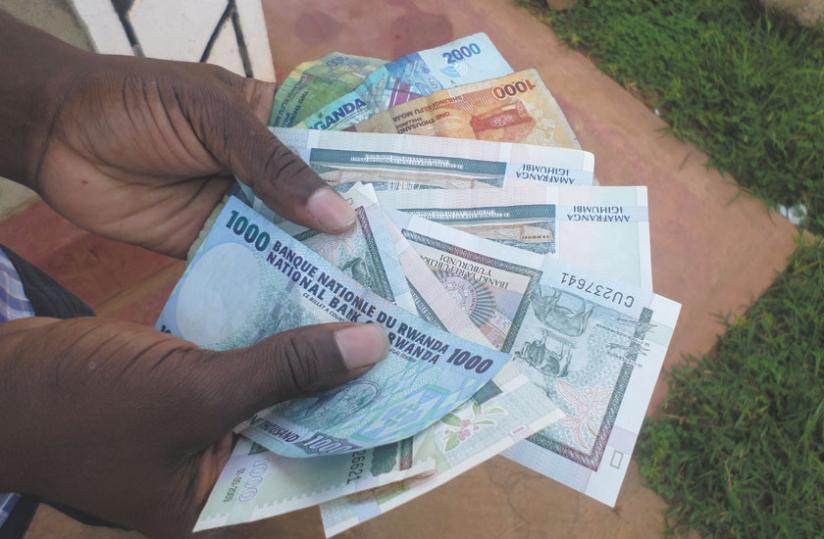The Rwanda franc made gains against the euro and the pound over the first quarter of this year (January-March, 2015), but declined by 1.95 per cent against the US dollar, a statement from the central bank indicates.


The Rwanda franc made gains against the euro and the pound over the first quarter of this year (January-March, 2015), but declined by 1.95 per cent against the US dollar, a statement from the central bank indicates.
The National Bank of Rwanda (BNR) quarterly forex report shows that the franc depreciated against the greenback by 0.58 per cent in March, 0.52 per cent in February and 0.85 per cent in January.
The central bank had projected the local unit to shed about 0.66 per cent last month but "as a result of increased inflows in the market, the franc depreciated at a slower pace than expected,” read the statement.
On the other hand, the local unit gained sizeable ground against the euro and the British Pound, appreciating by 3.25 and 4.17 per cent, respectively during the period. This was mainly driven by the two currencies’ poor performance against the US dollar in the international markets.
The central bank quoted the franc/dollar rate at Rwf700.9/714.9 (buying/selling) at the end of last month compared to Rwf687.7/701.5 at the start of the year. Forex bureaus in Kigali quoted it at an average Rwf715/720 at the end of last month lower than Rwf704/710 at the beginning of the year.
The euro and Pound were quoted at Rwf759.4/774.6 and Rwf1,038.1/1,058.9, respectively at the end of March by the central bank, down from Rwf829.1/845.6 and Rwf1,069.1/1,090.5, respectively at the start of January.
Fred Karangwa, the manager of Platinum Forex Bureau, noted that the demand for forex was high at the start of the year, but went on to stabilise from February onwards to date.
"Many people wanted forex at that time which caused the decline of the franc but since mid-February, it has been relatively stable,” he told The New Times yesterday.
Regionally, in the first quarter of 2015, the Rwanda franc and Kenya shilling were more resilient against the US dollar compared to other East African Community member states currencies, depreciating by 1.95 and 1.92 per cent, respectively.
The Uganda shilling was the most affected, shedding 6.94 per cent against US dollar over the same period, while the Tanzania shilling depreciated by 3.61 per cent.
KCB Bank head of treasury forex, Richard Ngabonziza, said since Rwanda imports more than it exports, the demand for foreign currencies will always be higher compared to the supply. He said this exposes the franc to depreciation against major currencies, especially the US dollar.
He added that the main concern is how the expected depreciation will be maintained within reasonable levels.
"For the first three months of the year, despite some speculative movements that we saw in the month of February, there is nothing abnormal that we would single out other than the logical disparity between foreign currency few inflows versus increasing demand for foreign currency or outflows levels,” Ngabonziza said.
ben.gasore@newtimes.co.rw


